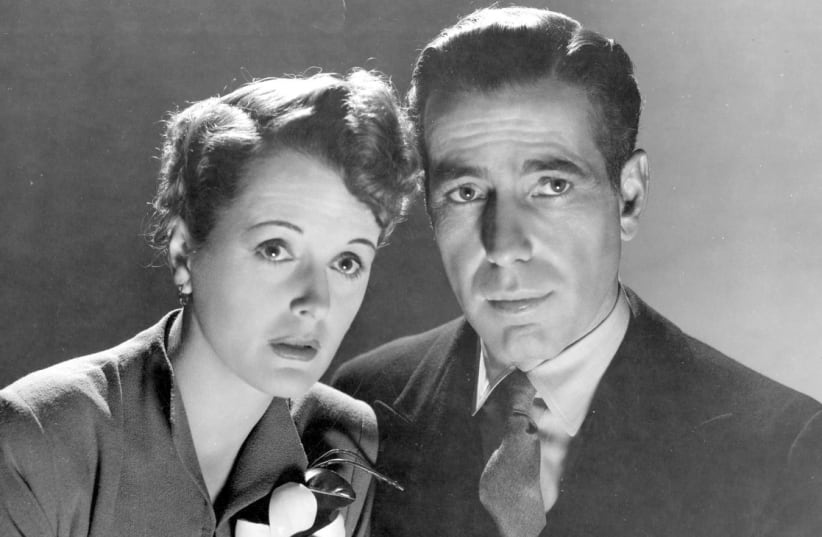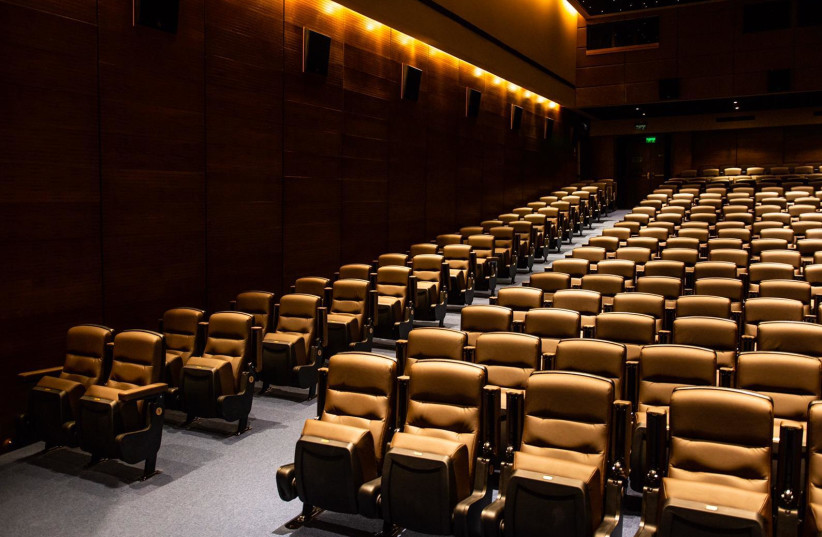Film noir movies should be seen on the big screen – and that’s how audiences will have an opportunity to enjoy some of the classics of the genre at the Jerusalem and Tel Aviv Cinematheques starting on October 12.
Noir movies provide the best escapism and excitement that cinema can offer, along with a dose of cynicism and darkness that makes them compelling, and they come with an underdog hero with whom we can always identify, whether he is on the right or wrong side of the law. And then there is that cinematography, filled with shadows and smoke, and featuring some of the most beautiful and intricate images ever put on film. Some of the greatest directors of the 20th century – among them John Huston, Billy Wilder, Fritz Lang, Orson Welles and Stanley Kubrick – are represented in this festival.
This Film Noir Festival is opening with one of the best-known noir films of all time: The Maltese Falcon. It was directed by John Huston, who never met a genre he did not master, in his directorial debut, and he adapted the screenplay from the novel by Dashiell Hammett. Humphrey Bogart has one of his greatest roles as Sam Spade, a detective who ends up searching for the title statue. It also features two of the best movie villains, played by Peter Lorre (who has said that this was his favorite of all his movies) and Sidney Greenstreet. Mary Astor plays the seemingly classy dame who has a lot to hide. The dialogue crackles and the plot gets very complicated, as it tends to do in noir.
If you can see just one movie in this festival, my pick would be Billy Wilder’s Double Indemnity. This 1944 film is one of the Austrian Jewish director’s masterpieces. Raymond Chandler worked with Wilder on the script, which is adapted from a James Cain novel, and even though the two screenwriters reportedly did not get along, Double Indemnity features a brilliant, sophisticated screenplay that is witty and tragic. It tells the story of a handsome, arrogant insurance salesman (Fred MacMurray) who is seduced by the sexy wife (Barbara Stanwyck) of one of his clients to take part in a scheme involving fraud and murder. But the salesman’s colleague, a quick-witted actuary (played by Edward G. Robinson, who was born Emanuel Goldenberg, into a Yiddish-speaking Romanian family), works to unravel the fraud. It has been parodied, imitated and referenced so many times, but the original has not lost its luster.
Robert Siodmak, another Jewish refugee from the Nazis, directed The Killers, a 1946 movie adapted from Ernest Hemingway’s short story of the same title. The tense opening scene is taken straight from the story, as two insolent killers go to a small-town diner looking for the prey and intimidate the staff. It was Burt Lancaster’s screen debut and Ava Gardner co-stars.
Delmer Daves’s 1947 Dark Passage stars Humphrey Bogart and Lauren Bacall. Adapted from a David Goodis novel, it tells the story of a man convicted of murdering his wife who goes on the run and is helped by a woman to prove his innocence.
An attractive young couple on a crime spree is the subject of Joseph H. Lewis’s 1950 film, Gun Crazy, which stars Peggy Cummins and John Dall. Blacklisted screenwriter Dalton Trumbo wrote the screenplay, using a front.
Post-war London is the setting for Jules Dassin’s 1950 Night and the City, about a grifter (Richard Widmark) who gets involved in the wrestling business. Gene Tierney co-stars.
A beautiful woman (Gloria Grahame) provides an alibi for her neighbor, a volatile screenwriter (Humphrey Bogart), who may have committed a murder in the Nicolas Ray’s 1950 film, In a Lonely Place.
Grahame also stars in Fritz Lang’s The Big Heat (1953), about a cop (Glenn Ford), who takes on a crime syndicate and ends up using some of their methods to win justice.
If ever a film was ahead of its time it was Charles Laughton’s The Night of the Hunter (1955). It is told through the eyes of two children whose mother (Shelley Winters) marries a charismatic preacher (Robert Mitchum) after their father dies. But the children figure out – before anyone else – that their stepfather is only interested in finding a stash of money their father hid and that he will stop at nothing to get it. The tattoos on the preacher’s fingers spelling out “Love” and “Hate” should have tipped off the adults around them that something is not right, but they have to face him on their own.
Charlton Heston plays a Mexican police detective investigating drug cartels who fights corrupt American cops, led by Hank Quinlan (Orson Welles), in Welles’s tense Touch of Evil (1958). The supporting cast includes Janet Leigh, Marlene Dietrich, Akim Tamiroff, Dennis Weaver and Zsa Zsa Gabor.
Some consider Robert Aldrich’s Kiss Me Deadly to be the greatest noir film of all time. Adapted from a Mickey Spillane novel, it stars Ralph Meeker as Mike Hammer in a story of how the private eye is drawn into deadly intrigues by a doomed hitchhiker.
Stanley Kubrick’s tense 1956 film, The Killing, is about a daring racetrack robbery and was adapted from a Jim Thompson novel. It stars Sterling Hayden and Colleen Gray.
You can’t go wrong with any of these suspenseful classics.
More info: jer-cin.org.il/en

